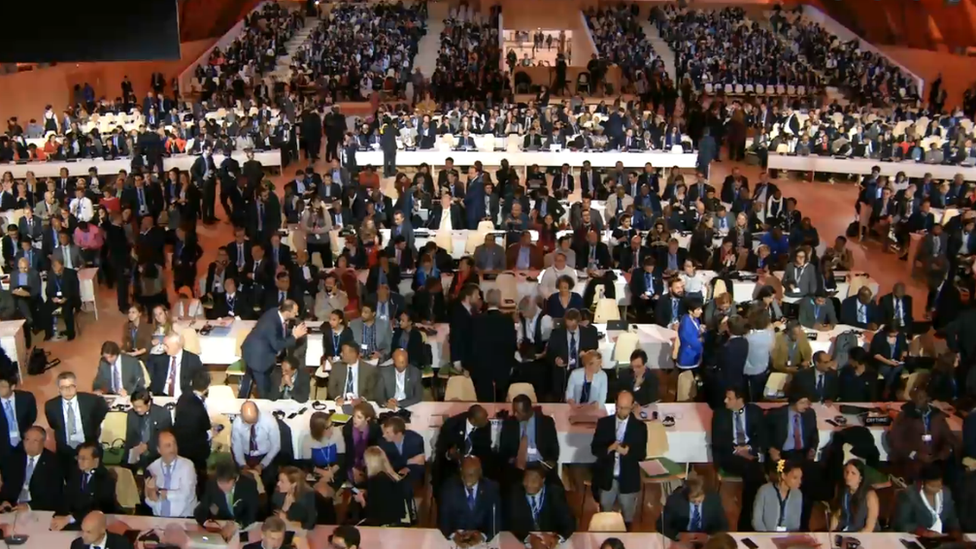COP21: UK 'will deliver' on climate change, says Amber Rudd
- Published
Amber Rudd MP: "It is a compromise but it is, nevertheless, an historic moment"
The UK is "absolutely committed" to the Paris climate deal and will be "making sure we deliver on it", Energy Secretary Amber Rudd has said.
She also said there is "political will" among countries to carry out its terms.
The agreement, which aims to limit the rise in global temperatures to less than 2C, was approved by all 195 countries at a summit in Paris.
David Cameron has said the deal represents "a huge step forward in securing the future of the planet".
The prime minister said it showed what "unity, ambition and perseverance can do".
Campaigners said it fell short of such "soaring rhetoric"; business leaders urged greater backing for clean technology.
'Historic moment'
The agreement, external is the first climate deal to commit all countries to cut emissions and followed nearly two weeks of negotiations.
Ms Rudd told the BBC's Andrew Marr programme that the part-legally binding and part-voluntary agreement was "not a perfect deal", but that "countries have agreed to do this, they have to come forward with the proposals".
She added: "We had to get the balance of being totally inclusive, getting 200 countries to sign up, but also not having such a tough compliance regime that you can say we had at Kyoto, which didn't succeed, that some countries would step away.
"I think this is the right balance, but it is a compromise. It is nevertheless a historic moment."
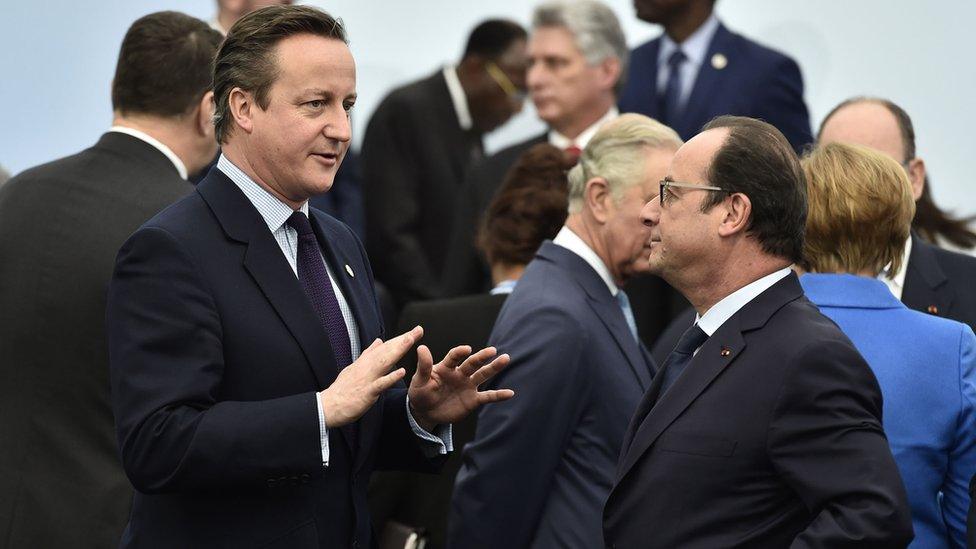
Prime Minister David Cameron and French President Francois Hollande
Ms Rudd also said while there were no "tough compliance" measures to ensure countries stuck to the targets, governments wanted to achieve them.
"Countries have agreed to do this. They have to come forward with the proposals and what you saw at the conference over the past few weeks was the support from civil society, NGOs and critically from businesses who are going to help pay for this."
Ms Rudd said the UK's contribution to combating climate change included being the first developed country to put an end date on its use of coal, and expanding offshore wind provision.
She also said the government would deliver energy change into the UK "in a different way" by "providing better value for money for consumers".
Asked about the government's plans to cut subsidies on renewable energy, Ms Rudd said there was "no point in having renewables which are permanently expensive".
"Subsidies isn't a long-term plan," she said. "The costs of solar have come down over the past 15 years by 80%. If the cost comes down then the subsidy comes down."
'Big step forward'
Welcoming the Paris deal, Mr Cameron said: "This global deal now means that the whole world has signed to play its part in halting climate change."
Scottish First Minister Nicola Sturgeon called the deal a "big step forward", but said it was important the "rhetoric is backed up by meaningful action".
Labour's shadow energy minister Barry Gardiner said the agreement would usher in a "new industrial revolution", which was clean and green.
"What we're seeing is the world waking up to the fact that we have to do things differently," he said.
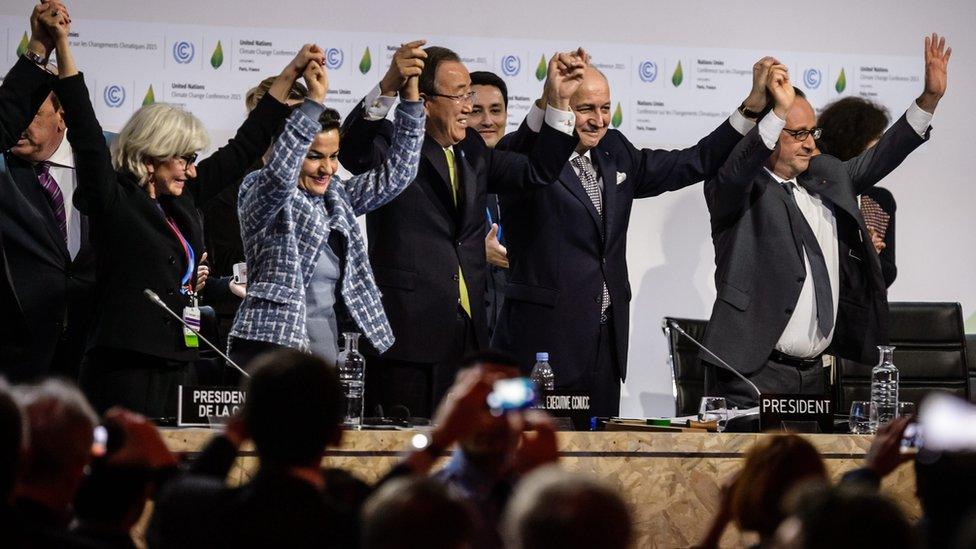
UN Secretary-General Ban Ki-moon and French President Hollande celebrate the Paris deal
However, Friends of the Earth chief executive Craig Bennett said there was still no "adequate global plan" to reduce temperatures.
He said: "This summit clearly shows that fossil fuels have had their day and that George Osborne's outdated, backward energy policies must be reversed if he wants to be on the right side of history."
Carolyn Fairbairn, the CBI's director-general, said the government should do more to back clean technology.
"The government must provide a stable environment that enables investment in cleaner, more affordable and more secure energy generation, including renewable technologies and new gas plants," she said.
Former Conservative environment minister Richard Benyon said there would now be a "race for green technologies".
"Countries are going to be competing with themselves for a growing economic market place for green technologies. And you're going to see the innovation that exists in human nature really come alive because of this."
- Published13 December 2015
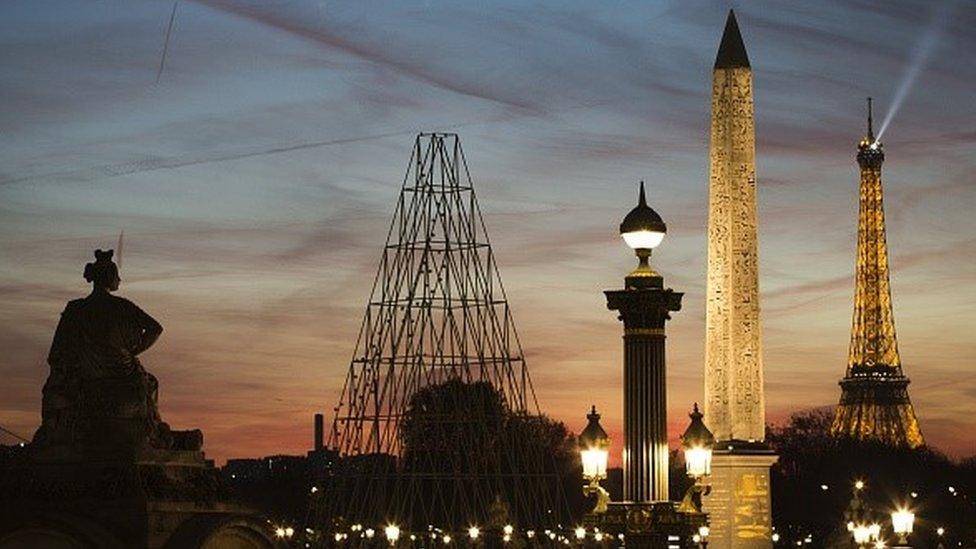
- Published12 December 2015
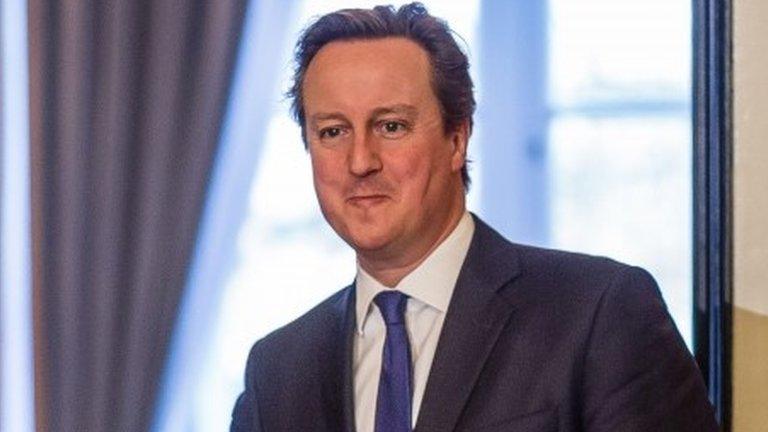
- Published13 December 2015
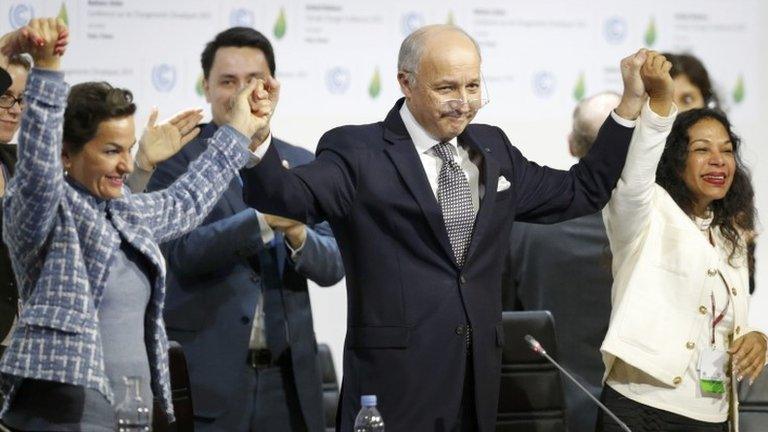
- Published25 November 2015
